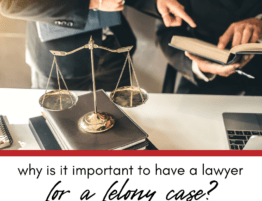
If you’re like many people, you’re wondering whether your lawyer can tell on you – and if they can (or can’t), you’re wondering what types of communications are protected between you. This guide explains.
Can Your Lawyer Tell On You?
In general, lawyers can’t tell on their clients. Attorney-client privilege exists, and it prevents lawyers from spilling your secrets unless absolutely necessary. That means it’s safe for you to admit guilt (if your lawyer asks you whether you committed a crime) – your lawyer isn’t going to walk into court and say, “I know my client pleaded not guilty, but he did it.”
What is Attorney-Client Privilege?
Attorney-client privilege is a legal concept that prevents lawyers from telling people outside the attorney-client relationship what you tell them. It’s meant to protect clients who are vulnerable and need legal advice without worrying about their lawyer using it against them.
Related: Can you hire a lawyer for your family member or friend?
How Does Attorney-Client Privilege Work?
The way attorney-client privilege works is fairly simple. When you tell your lawyer something, it’s treated as confidential and can’t be used in court without your express permission. There are certain exceptions to this rule (such as if the information is pertinent to a criminal investigation), but generally speaking, whatever you tell your lawyer stays between you two.
What Should You Know About Attorney-Client Privilege?
When it comes to attorney-client privilege, there are a few things you should keep in mind. First, not all conversations with your lawyer are protected by attorney-client privilege – only those related directly to legal advice or strategy. Second, while your lawyer can’t tell on you, they may be required to report certain information (such as if they believe you’re a danger to yourself or others).
Finally, attorney-client privilege isn’t absolute – it can be breached if the court finds that revealing the information is necessary for justice. That being said, your lawyer still won’t willingly tell on you – they’ll work hard to protect your privacy and rights.
At the end of the day, you can rest assured knowing that your lawyer won’t tell on you unless absolutely necessary. Attorney-client privilege exists to protect clients just like you, and it’s an important part of maintaining trust between lawyers and their clients.
Related: Do you have to talk to police in public?
Do You Need to Talk to an Attorney?
If you’ve been accused of a crime, we may be able to help you – and don’t worry: It’s completely confidential. Call us at 847-920-4540 or fill out the form below to schedule your free, private consultation with an experienced and skilled Chicago criminal defense attorney now.
Contact Us
"*" indicates required fields









